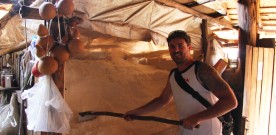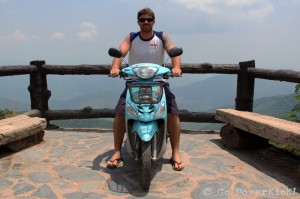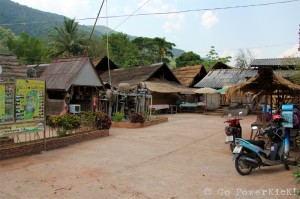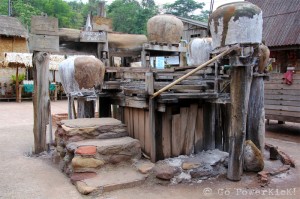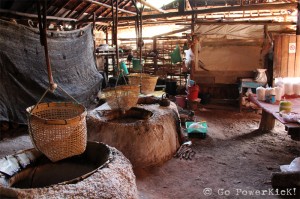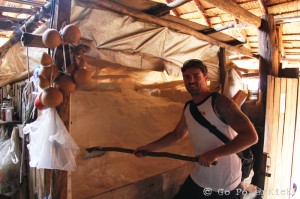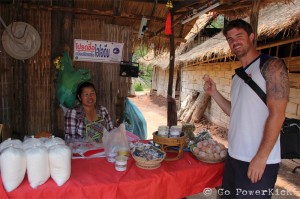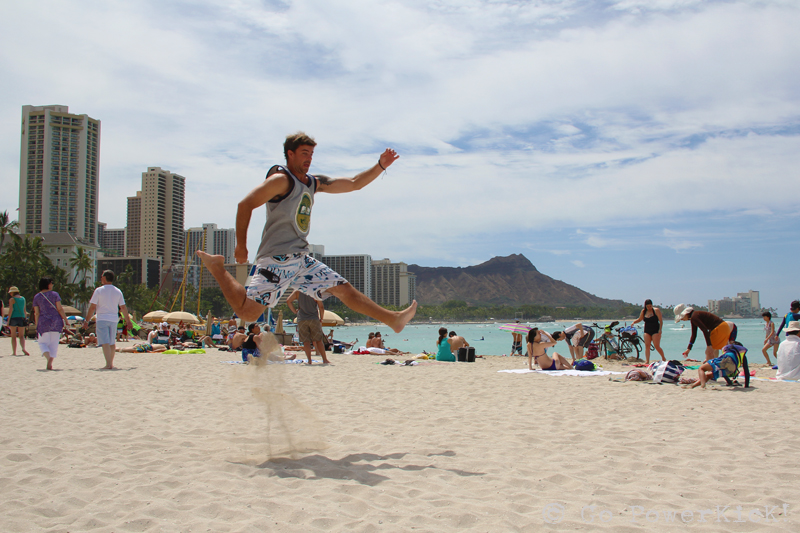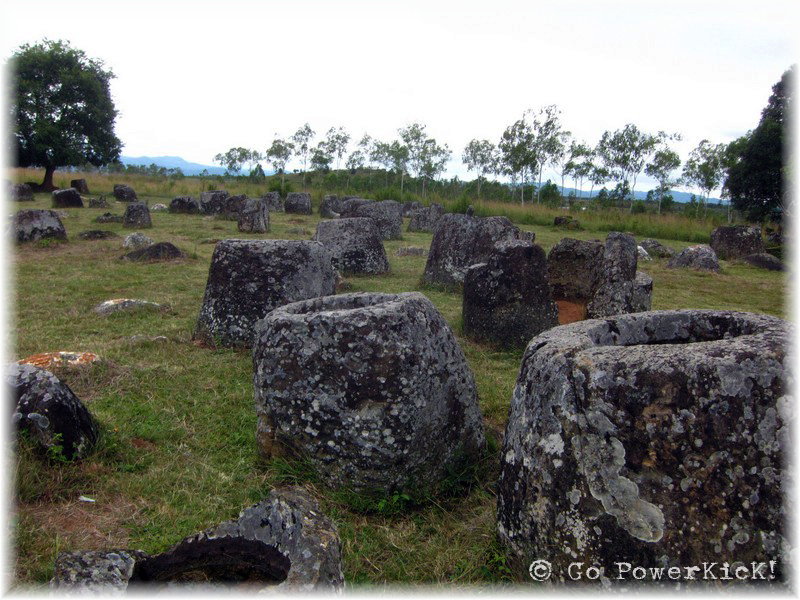Bo Kluea, a small mountain village roughly 100km northeast of the northern Thai city of Nan, has been tapping into a plentiful local resource for over 800 years. Percolating to the surface from local wells, an endless supply of saltwater has created a strong local economy based around salt; which has even been used as a form of currency when bartering with neighboring village communities.
While in Nan I rented a motorbike and made the ride to explore the Bo Kluea salt wells. Leaving town, the first 70km was a scenic ride winding along a 2 lane highway. The remainder of the ride split off from the main road and twisted and turned through the beautifully isolated mountains of Doi Phu Kha National Park. This area of Thailand is still relatively uncharted, which made the visit quite a unique glimpse into a truly genuine “traditional Thai lifestyle.”
Bo Kluea Village is made up of about 150 families and once had 9 functioning salt wells, however today only 2 remain. Each salt well is surrounded by 5 to 7 huts where villagers live and sell their salt and other products to visitors from small vending tables.
I met and spoke with a local villager, Khun Anong, who shared with me some information about how salt production takes place. She said that each hut around the well has its own large clay jar which it uses to collect saltwater. This jar is special, and the handling of it is only allowed by certain individuals. Traditionally, only men who had been blessed in a sacred Buddhist ceremony could handle the jar and retrieve water from the well. Once filled, it was brought into the hut and the process began. However, to keep up with ‘modern technology,’ the well is now piped into a large storage pond in each hut, eliminating the lengthy and tiring process of filling the jars over and over.
Once the water is in the hut, fires are started and the evaporation process begins. 4 large wok’s are filled with well water and placed over fire pits where the water boils until it evaporates, leaving behind only dry salt. The boiling process takes about 3 hours and 4 batches are done per day, yielding roughly 200kg of salt. After each wok has boiled off its water, the remaining dry salt is moved into a basket above the fire where it continues to dry throughout the day as the process is repeated.
After the salt is dried it’s moved to a large storage area before it’s bagged and sold. The salt can sit here for as little as 1 day or as long as 2 weeks, all depending on how many customers visit the well each day. Bagging the salt is all done by hand and Khun Anong personally scoops her dried salt into 2kg bags which she sells in front of her home.
Salt has been a part of Khun Anong’s life for as long as she can remember. She said that salt is who she is; and she remembers her great grandparents, grandparents and parents all making and selling salt in the village. Now, from her ‘store front,’ she sells boiled and slated eggs (which are delicious), scented bath salts and individual 2kg bags of salt to visitors who come by each day.
She shared a concern she has for the future of her family’s salt well. Her children have moved out of the village and are now living in the city of Nan, studying at a university. She is worried they will not come back to Bo Kluea to work the family salt well, but rather get a job in town. The longevity of their well depends on passing it on to the next generation, which she thinks might not happen for the first time in generations. She said she would like to retire, but if she does this might put an end to the family’s salt well and she will have no income to live on. The family’s legacy and her livelihood both rely on salt production. She is concerned for the future, but remains hopeful that one of her children will come back to the village and carry on the family business.
Comments
More Good Reads!

The Best Mai Tai In The World
May 23, 2014
Helicopter Over Oahu
May 10, 2014
May 2014 PowerKicK Of The Month
May 01, 2014
Bike The Golden Gate Bridge
April 29, 2014
Hua Hin Hills Vineyard
April 19, 2014
Songkran in Nan
April 10, 2014
April 2014 PowerKicK Of The Month
April 01, 2014
Mae Hong Son Motorcycle Loop: Mae Sot to Mae Hong Son
March 28, 2014
Becoming A Buddhist Monk In Thailand
March 20, 2014






